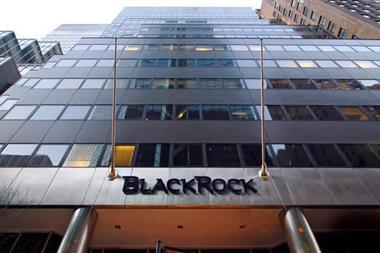Fund managers have paid £34m (€38m) to UK investors as compensation for not being clear about how they were managing certain funds.
Writing about the Financial Conduct Authority’s (FCA) work on so-called closet trackers in the daily newspaper The Telegraph this weekend, Megan Butler, executive director of supervision for investment, wholesale and specialist at the regulator, said it had reviewed 84 potential closet tracker funds. Of these, 64 were required to make it more clear how constrained the funds were.
The other 20 were adequately describing how they were managed, she said. An enforcement investigation was ongoing against one firm.
“We expect fund managers to take their duty to their consumers seriously,” wrote Butler. “They should manage their funds the way consumers expect them to and tell consumers what they are doing. That is why clear promotional material for investment funds is a priority for us.”
She said the regulator had discussed this as part of the proposed remedies in the final report on its asset management market study.
This was carried out to assess whether the asset management industry was delivering value for money for investors. The FCA said there was around £109bn invested in funds labelled as active but that closely mirrored the market and were significantly more expensive than passive funds.
In her article, Butler said not all of the funds covered by the figure were closet-trackers. Instead, the figure referred to the amount invested in “partly active” funds that were significantly more expensive than traditional passive funds. This reinforced the central finding in the FCA’s study, she said, namely that price competition in asset management was weak in a number of areas.
Better Finance, a Brussels-based consumer finance organisation, said the FCA was the first EU supervisor “to force closet indexers to indemnify their victims”. It called on the regulator to name the 64 funds.
Robecco extends tobacco ban
Robeco will no longer invest in the tobacco industry in its mutual funds, extending a policy that already applies to its sustainable fund range.
The exclusion will be implemented for its mainstream funds, including sub-advised funds, by the end of September, the Netherlands-headquartered asset manager said today.
Robeco said the decision was based on an inability to engage with the tobacco industry to lead to fundamental change, and the announcement last year by the UN Global Compact to exclude tobacco companies from the initiative.
BNP Paribas made a similar move last week.
TOBAM, ChinaAMC launch China A-Shares smart beta strategy
Quantitative manager TOBAM and China Asset Management Company (ChinaAMC) have developed a China A-shares investment strategy that they are pitching as an alternative to investing based on market cap-weighted indices.
The strategy based on TOBAM’s Anti-Benchmark process and “aims at delivering the risk premium of the asset class via diversification, which seeks to translate into both excess return and reduced volatility versus the corresponding market cap-weighted index”, the managers said in a statement.
Last year MSCI announced it would include China A-shares in its emerging market benchmarks for the first time.
Xiaodong Tang, CEO of ChinaAMC, said: “Chinese clients have shown interest in various smart beta strategies with pre-defined screening and weighting rules that overlay simple exposure to equity classes, and we expect these strategies to gain traction.”
Mediobanca takes over Switzerland’s RAM AI
Italy’s Mediobanca has acquired a 69% stake in Swiss boutique manager RAM Active Investments (RAM AI), buying shares from the Reyl Family and the manager’s employees.
REYL Group, the historical shareholder, will retain a 7.5% stake and the founding partners of RAM AI will retain “significant” stakes, according to a statement.
Mediobanca will contribute CHF200m (€171m) of seed money to help RAM Active Investments launch new investment products.
The 69% stake in RAM AI adds €4.3bn of assets under management to the Mediobanca group.
RAM AI runs fundamental systematic equity and discretionary fixed-income funds.
Hermes publishes gender pay gap
Hermes Investment Management published a legally-required report on gender pay this week, revealing a gap of 30.2%.
Saker Nusseibeh, chief executive of the £33bn asset manager, said the figure was likely to be on par with the rest of the asset management industry, but it was “simply not good enough”.
Senior female representation would need to increase across the company to close this gap, especially in its investment and business development businesses, the company said.
As at August last year, 23% of senior managers across the company were female.
All UK employers with 250 or more employees must disclose their gender pay gap every year. Aberdeen Standard Investments and Jupiter Asset Management have disclosed similar data.
Natixis reveals new name
Natixis Asset Management will be renamed Ostrum Asset Management as of 3 April.
The company is part of Natixis Investment Managers, which is aligning its multiple subsidiaries’ brands as part of a strategic plan.
Ostrum means “purple coloured” in Latin.










